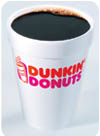
Grain Matter
The fallout from the revised dietary guidelines continues to be seen even now, nearly a year after their publication. While it may be early to judge just how much consumers have taken the recommendations to heart, manufacturers have proactively offered new options, particularly in the area of whole grains.Interstate Bakeries Corp., for instance, has introduced a whole-grain version of its popular Wonder white bread. Three new Wonder white breads, in fact, have been launched with a more-nutritious positioning—Wonder Made with Whole Grain White, Wonder White Bread Fans 100% Whole Grain and Wonder Kids.
A study commissioned by Uncle Ben's has found only 12% of American consumers are eating the recommended two to three servings of whole grains a day, with only one in 10 saying they are most likely to consume whole grains at dinner. The company has increased the whole-grain options for dinner by debuting two new whole-grain brown rice sides—Uncle Ben's Ready Rice Chicken Whole Grain Brown and Uncle Ben's Fast & Natural Whole Grain Instant Brown Rice.

Even Better
If only consumers had known how healthful chocolate was, maybe there would not be such a health crisis. Early last year, Italian experts found that eating dark chocolate could help control diabetes and blood pressure. Consuming 100g of dark chocolate for 15 days lowered blood pressure in the 15-person study, and the body's ability to metabolize sugar improved as well. In the wake of such findings, manufacturers are turning their attention to bringing more nutritious chocolate options to market.Mars Inc. already has received much attention for its CocoaVia products, full of those flavonols that worked so positively in the Italian study. According to Tom Ward, president of Whitman's Candies, “There is no limit to the potential growth of 'better for you' chocolates. It's not inconceivable for consumers to prefer 'better for you' chocolate to regular chocolate, if they find it to taste just as good and can find it at an affordable price.”
In that vein, Whitman's has introduced a line of chocolate candies co-branded with Weight Watchers International. The range includes such flavors as English toffee squares, mint patties, pecan crowns, crispy caramel and chocolate mousse.

Fly Away Home
Airline food never had a strong reputation, serving as fodder for comedians for years. However, airlines have eliminated almost completely the fare that coach passengers once took for granted.According to the Chicago Tribune, major U.S. airlines have reduced their food spending by nearly 30% since the end of 1999, and major airline caterers are being forced to lower costs. American Airlines notes it saved $30 million by eliminating complimentary food. As it is, consumers have been warned not to expect the hot meal to return to coach class.
While first class and long international flights still enjoy a meal service, the remaining passengers have to make do with snacks, salads and wraps, often for a hefty price.
In the midst of this, low-fare airline JetBlue has partnered with Dunkin' Donuts to serve its coffee on all flights. Citing a survey of 1,000 adults, JetBlue says more than one-third of Americans say airline coffee is worse than their daily cup of coffee. JetBlue will serve Dunkin' Donuts original blend coffee and Dunkin' Decaf in a 10oz cup.
Good is Bad
News about a star ingredient of recent years would appear to shed some doubt upon its healthful attributes. Omega-3 fatty acid “is unlikely to reduce the risk of cancer,” according to a Journal of the American Medical Association review of nearly 40 years of studies. Researchers claimed, “An entire supplement industry has sprung up based on mainly small studies that linked omega-3 fatty acids to a reduction in various forms of cancer.”Curiously, researchers failed to attribute that industry growth to omega-3s' more widely known, reported and proven benefits to cardiovascular health and infant brain development, not to mention studies touting the ingredient's benefits to mental health. The National Institutes of Health, for instance, found that higher national consumption of fish (a primary source of omega-3 fatty acids) for a nation equals lower rates of depression versus countries consuming lesser amounts of fish.